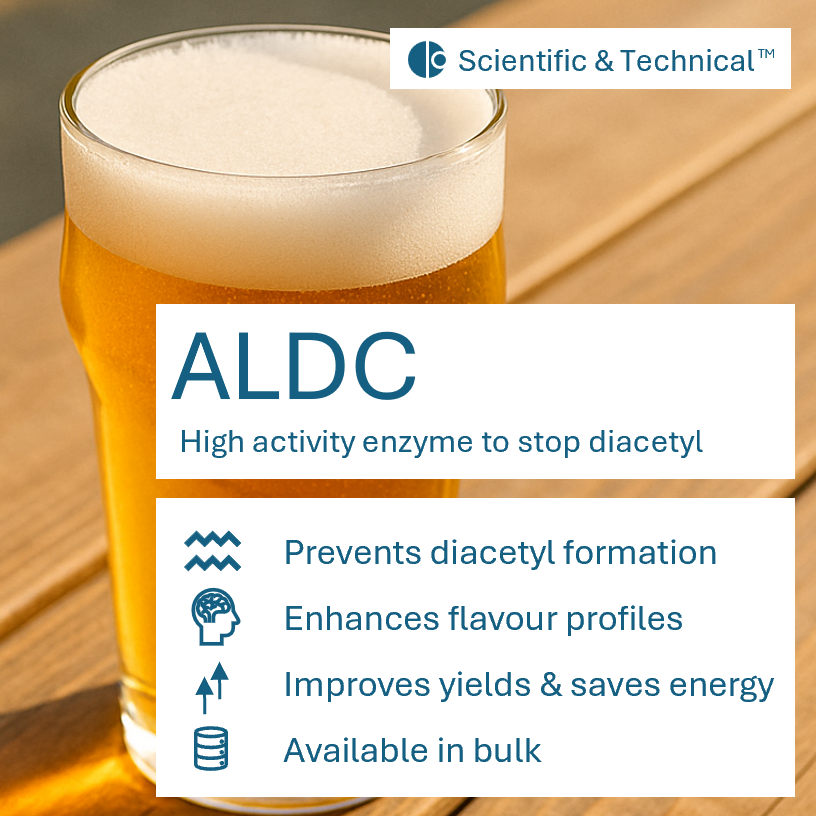Couldn't load pickup availability

Alpha acetolactate decarboxylase (ALDC): Concentrated high activity enzyme which prevents diacetyl formation
Applications include: Brewing, Wine, Dairy, Food and Flavour, Academic Research
Properties: Acetolactate decarboxylase (ALDC) is an enzyme widely used in brewing to prevent the formation of diacetyl, an unwanted by-product that imparts a buttery off-flavour to beer. The enzyme catalyses the rapid conversion of α-acetolactate—a precursor naturally produced by yeast during fermentation—into acetoin and carbon dioxide, bypassing the slow, spontaneous oxidation step that generates diacetyl. ALDC is a non-thiamine-dependent carboxy-lyase (EC 4.1.1.5) that functions optimally around pH 5.5–6.5 and 30–40°C, conditions typical of beer fermentation. It is a tetrameric enzyme with a molecular weight of about 25–30 kDa per subunit and does not require metal cofactors for activity. By accelerating acetolactate breakdown, ALDC shortens maturation time, enhances flavour stability, and allows brewers to produce cleaner-tasting beers more efficiently.
Chemical Formula:
(S)-2-acetolactate→(R)-acetoin+CO2
- Certification: Food grade, ISO22000
- Appearance & density: Brown liquid, 1.2-1.25 g / mL
- Temperature range: 25-40°C
- pH range: 5.0-7.0
- Substrates: Acetolactate
- Products: Acetoin
- Storage: >12 months, store dark between 5-25 deg. C
- Safety: (contact)
- Technical Data Sheet: (contact us)
- Example Use Cases: (contact us)



